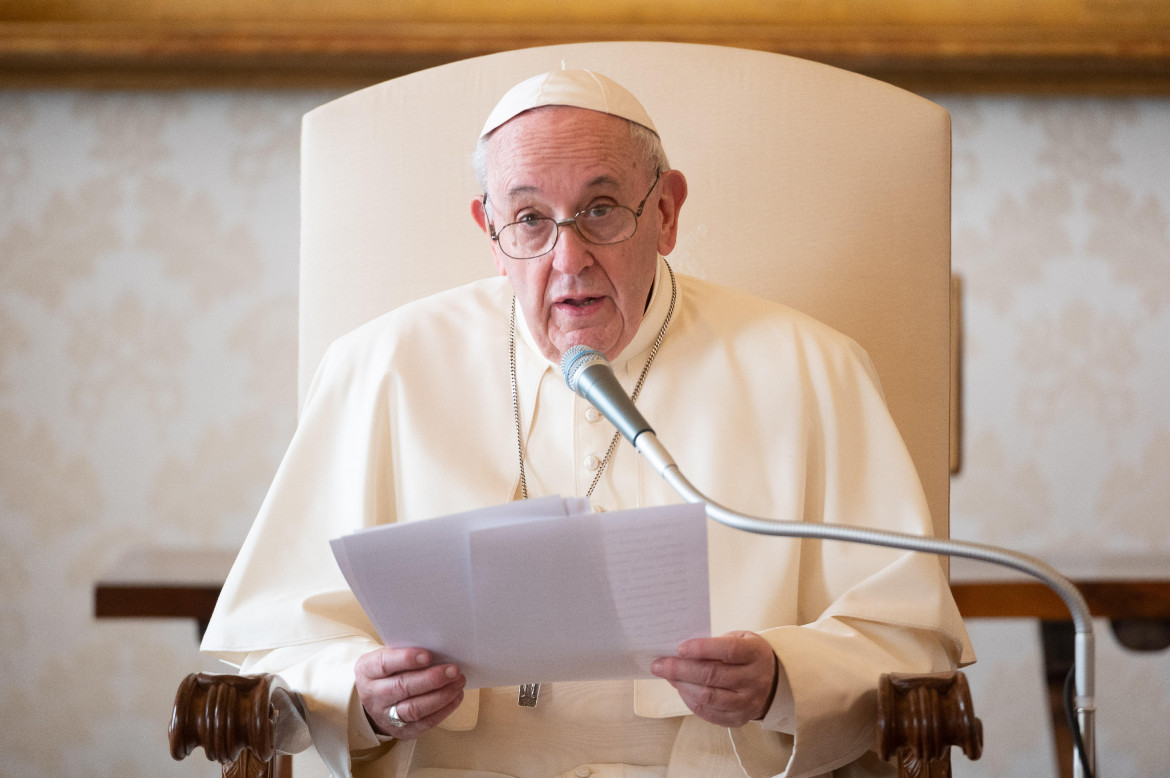Analysis
Pope Francis: ‘Private property is not untouchable’
Pope Francis spoke directly to the judges of Africa and America saying: ‘No sentence can be just, nor can any law be legitimate if what it produces is more inequality.’

In a world that appears to be governed by enormous economic inequalities, it is necessary to build a “new social justice, starting from the assumption that the Christian tradition has never recognized the right to private property as absolute and untouchable” over and above the value of the common good.
In a message sent to participants at the international video conference of judges who are members of the Committee for Social Rights of Africa and America, which ended on Wednesday evening after two days in session, Pope Francis reaffirmed one of the cornerstones of the Church’s social doctrine (the “universal destination of goods”); however, he put it in new terms, using a formula first employed in the encyclical Fratelli tutti, signed in Assisi two months ago: “The right to property is a secondary natural right derived from the right that everyone has, born from the universal destiny of created goods.”
It was an update mainly concerning the terminology, which is part of a line of thought inaugurated by Leo XIII with his Rerum novarum at the end of the 19th century—and, much before that, by the “Fathers of the Church” of ancient Christianity—but which also contains some elements of novelty. Such as the fact that he addressed his speech to judges, who must interpret and apply the law. “There is no social justice that can be cemented on inequality, which is the concentration of wealth,” said the pontiff, inviting the magistrates “to acquire a more complete dimension of their mission and social responsibility.”
Thus, he added, “no sentence can be just, nor can any law be legitimate if what it produces is more inequality” or a “greater loss of rights, indignity or violence.”
In his final appeal, Francis reiterated the watchwords of the popular movements: to rethink the idea of social justice, one must show “solidarity and justice,” fighting “against the structural causes of poverty, inequality” and the lack of “land, housing and work, techo, tierra y trabajo, the three ‘Ts’ that make us dignified.”
“Property as a ‘secondary natural right’ is a new expression that until now had not emerged in the papal magisterium,” Prof. Daniele Menozzi explained to il manifesto. He is professor emeritus of contemporary history at the Scuola Normale in Pisa and scholar of the papacy in modern and contemporary times.
“It is new language, but it is not a conceptual novelty. It lies at the intersection of two traditions,” Menozzi continues: “the thousand-year-old tradition of the universal destination of goods, according to which, since the Patristic age, it was emphasized that in case of emergency it was lawful for the poor to appropriate what was necessary for their sustenance; and the more recent one of Rerum novarum, in which Leo XIII affirmed that private property is a natural right of the person, but that the state has every right to ‘temper it’ for the common good of all; then further developed by Pius XI, who affirmed the right of the state to expropriate private property (with compensation) for the social good.”
What is completely new, according to Menozzi, is the perspective: “Francis is no longer positioning himself at the level of industrial relations, also because there is no longer the twentieth-century spectrum of socialist collectivization that Leo XIII and Pius XI saw, but in a global geographical perspective, where there is a concentration of property that is damaging for the entire planet and that therefore makes it necessary to have equity in the distribution of goods. And then, the fact that he is speaking to judges: he doesn’t want to put forward just a doctrinal discourse, but is inviting them to put it into practice at the jurisdictional level.
“Thus, it is not an abstract vision of collective organization, but it is a legal vision, which is why those who are holding the instruments of law enforcement in their hands must put it into practice.”
Originally published at https://ilmanifesto.it/la-proprieta-privata-non-e-intoccabile-serve-giustizia-sociale/ on 2020-12-02
